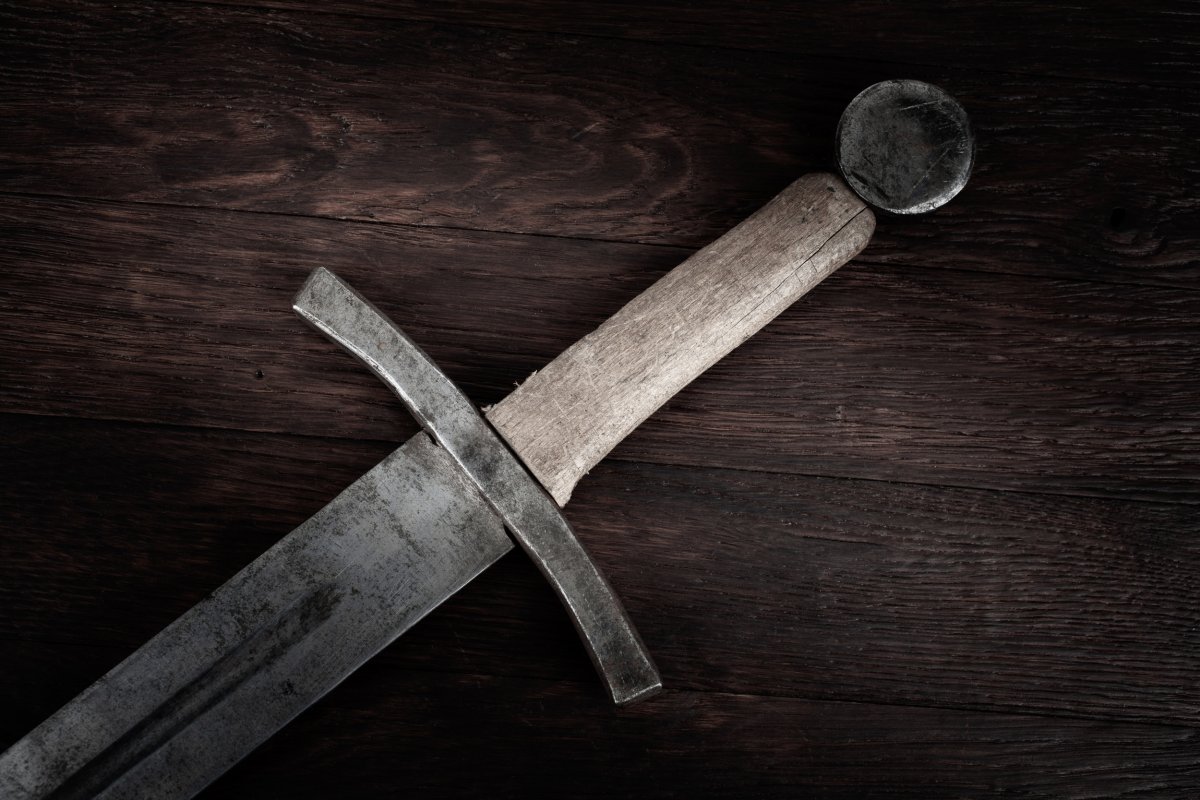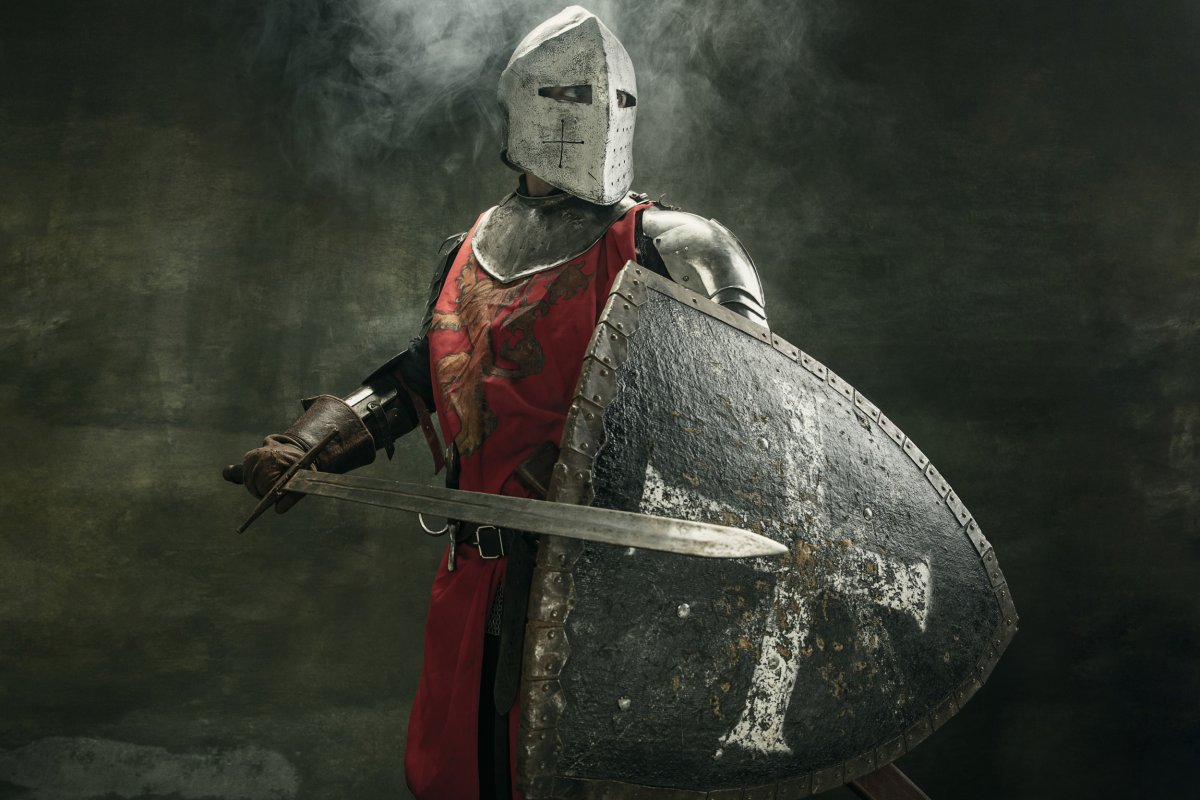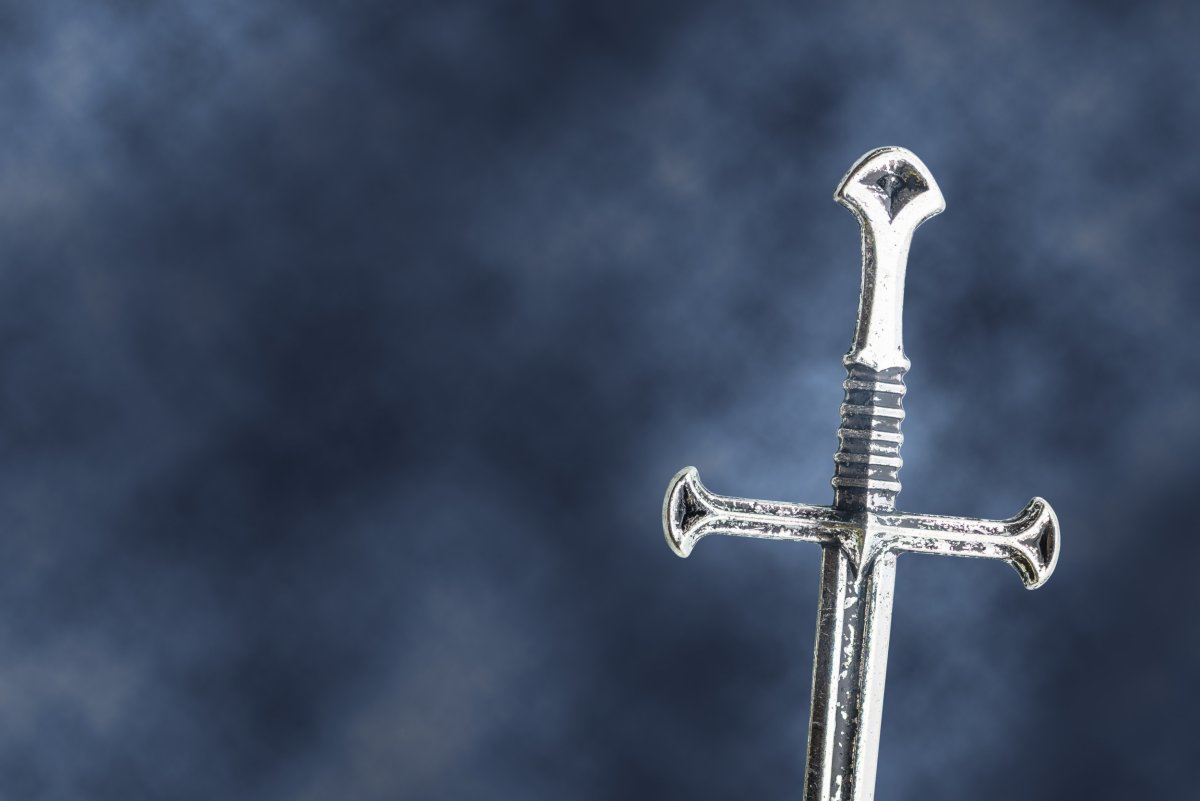An ancient iron sword found off the coast of Israel is thought to have dropped into the ocean around 800 years ago during a fierce battle between Crusaders and Muslim residents.
The weapon was initially covered in thick layers of sand and shells from its centuries under the sea, which was both a blessing and a curse. While the layers of sedimentation protected the sword from being broken down by the elements, it made it hard to study the sword itself without causing damage.
While it was fished out from the depths in 2021, the sword has now been examined using X-rays and officially described in a new study in the Israel Antiquities Authority (IAA) journal Atiqot.
The Crusades were a series of religious wars sparked by the Christian church between 1095 and 1291, which involved sending missionaries to the Middle East to attempt to remove the influence of Islam. The First Crusade resulted in the conquest of Jerusalem from the Fatimid Caliphate in 1099, with proceeding wars continuing for 200 more years.

"It is unfortunate that we can't see the sword as it was," the researchers said in a Facebook post from the IAA. "On the other hand, the concretion is responsible for slowing down the oxidation process, preserving the sword in its entirety. Otherwise, the iron would have rusted and disintegrated in the water."
The study explains how the sword was studied without removing the "biogenic crust" layer of sand and shells, using X-rays to examine how it looked beneath its coating. They dated it back around 800 years to the "twelfth to thirteenth centuries."
"The sword was used by a Crusader warrior who settled in the country after the First Crusade and established the Kingdom of Jerusalem in 1099," Jacob Sharvit, a researcher from the IAA, said in the post.
X-ray imaging reveals: The Medieval sword found in the sea off the Carmel coast that probably fell into the water during a naval battle about 800 years ago>>A paper published by researchers from...
"Considering the bloody battles that took place in the country between the Crusaders and the Muslims, known from several historical sources, we could expect to find more such swords. In practice, we mostly find fragments, very few whole swords," Sharvit said. "So far, seven swords from this period have been found in the country, most of them discovered in the sea. Swords were not usually discarded, but over the years, once they were no longer in use, the metal was recycled for other uses."
The iron sword is 35 inches long, with a 1.8-inch-wide blade. The X-rays also showed that the blade was bent, leading the researchers to think it had likely been used in battle by a Crusader, as swords in that area of the world during the Crusades often had curved blades.
"The sword was part of a knight's or warrior's personal equipment. It was the main weapon in face-to-face combat in those days," Joppe Gosker, one of the researchers, said in the post. "Swords required a lot of quality iron and were therefore expensive. In addition, sword fighting required training and practice, and therefore, only the nobility and professional soldiers fought with swords."

The researchers think that the sword possibly fell into the sea during a naval battle, due to being found without the sword's usual casing of a scabbard.
"Being expensive, swords are usually found within a scabbard. In this case, only the sword was found," Gosker said. "From this, we can infer that it fell into the sea during a battle, possibly with its owner. We didn't find any additional remains in our scans of the place, but who knows? The warrior may still lie undiscovered in the depths, to be revealed one day by the shifting sands."
The region where the sword was found by diver Shlomi Katzin, the Carmel coast, is also home to numerous other archaeological discoveries from this era and beyond.

"Every new find uncovered during archaeological research or by chance, adds another piece of information to our understanding of a period or a site," Eli Escusido, Director of the IAA, said in the post.
"Thus, the divers, who reported the find to the Israel Antiquities Authority, received a certificate of appreciation. All along the coast of Israel, there are many finds buried beneath the sand and in the sea, and they are often lost forever, or sometimes discovered by chance.
"It is important that qualified archaeologists record the finds and their contexts. Over recent years, sea diving has become a popular sport, and hundreds of pairs of eyes search the seabed. Consequently, new discoveries are made, and they must be reported to the Israel Antiquities Authority, and recorded and kept in the State Treasuries, enriching our archaeological heritage."
Do you have a tip on a science story that Newsweek should be covering? Do you have a question about ancient swords? Let us know via science@newsweek.com.
Uncommon Knowledge
Newsweek is committed to challenging conventional wisdom and finding connections in the search for common ground.
Newsweek is committed to challenging conventional wisdom and finding connections in the search for common ground.
About the writer
Jess Thomson is a Newsweek Science Reporter based in London UK. Her focus is reporting on science, technology and healthcare. ... Read more
To read how Newsweek uses AI as a newsroom tool, Click here.








